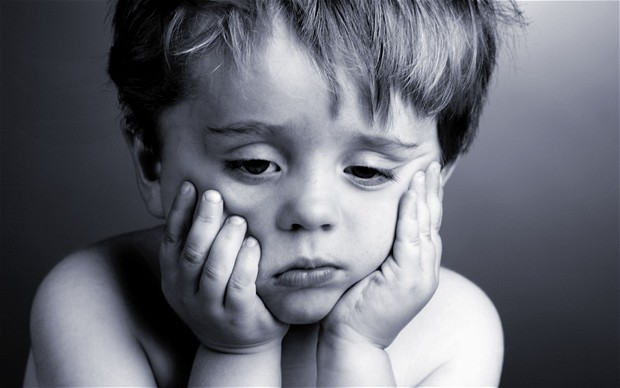Depression in Young Children
/Depression in Children
by, Patience Domowski, LCSW
Depression is often characterized by symptoms such as severe chronic sadness; frequent crying, difficulty or resistance in doing regular activities like going to school or work, not interested or motivated to interact with others like hanging out with friends or going to social events. Sometimes there are also suicidal thoughts or actions as well. However in young children the symptoms for depression can look a bit different. Often parents are looking for the symptoms listed above in their child to identify them as “depressed” and are surprised or confused when their young child is identified with depression or a mood disorder when they really don’t seem sad.
Children with depression may have the above listed symptoms, however oftentimes children present with symptoms of anger or rage outbursts, often very cranky or irritable, easily frustrated or upset, and overreaction or extreme aggression outbursts (often over small problems). Aggression can be physical- like hitting, kicking, throwing objects, or verbal- screaming, saying mean things.
Sometimes depression comes from a specific event such as someone dying, parents divorce, being bullied at school, or a traumatic event. Other times it comes from “nowhere”- it could be genetic, or just something is off in the person’s brain chemicals. Often depression and mood issues are genetic and run in families. Sometimes symptoms only occur in one setting- such as just at home, or only at school. Sometimes they are worse or more prevalent in one place than another (more at mom’s house than dad’s house, for example in divorced families).
It’s helpful to be aware of what depression can look like in young children because it differs from the typical symptoms we think of that are more easily seen in adults and teens. By being more aware we can help get children and families help sooner. If you see these symptoms or have concerns about a child, please have them see their pediatrician, school psychologist, or a behavioral therapist/mental health clinician. The clinician or doctor can help figure out what the problem is and how to fix it so the child is feeling better and behaving better at home and school.
There are a few different diagnoses that may be considered. Here are some general ideas of what each disorder means. They must be diagnosed by a licensed therapist or doctor however. This is not an exhaustive list or inclusive of all the symptoms, but just a very brief overview/explanation.
Depressive disorder – depression symptoms, as listed above
Mood disorder - mood issues, doesn’t fit exact definition of another disorder
Disruptive Mood Dysregulation Disorder (DMDD)- depression symptoms such as frequent irritability with oppositional defiant disorder (ODD) symptoms
Childhood emotional disorder- other emotional issues related to children
Adjustment disorder with depression- patient is adjusting to a trauma or life event that is causing the depression symptoms
Prognosis is usually pretty good for young children who are identified and treated early. Some children will just “grow out” of their symptoms, while other children may need treatment. Sometimes the symptoms occur at different times and go away and then return in a different form. Children with depression/mood disorder don’t necessarily have a diagnosis for a lifetime. Children often may only have depression symptoms for a short period of time, or they may occur cyclically, while some may suffer for a longer period of time, even into adulthood. Usually with treatment children can learn to manage or overcome their symptoms. Parents can also learn how to better support and help their children going through this as well.
Treatment for children usually involves first identifying the need such as noticing the symptoms, and reaching out to a child specialist to help. Getting your child diagnosed may also be the first step. Pediatricians, psychiatrists, school psychologists, mental health therapists and clinicians can diagnose, treat, or refer to someone who can help. Sometimes there is just an initial discussion with a therapist or doctor about the symptoms and other times there is a more formal assessment (including observations, testing, etc) for diagnosis. Treatment can include cognitive behavioral therapy with a child behavioral therapist, social worker, school counselor, or psychologist. A psychiatrist or pediatrician may recommend medication to help improve mood, which affects behavior. Sometimes if there are behaviors at school that are causing a problem there may be a need for a formal school evaluation and services provided via a 504 or IEP plan. Often a mix of treatment modalities such as medication, therapy, and school supports are the most effective.
Other helpful articles:
http://www.webmd.com/depression/guide/depression-children
http://kidshealth.org/en/parents/understanding-depression.html
http://www.nytimes.com/2010/08/29/magazine/29preschool-t.html
http://www.wingofmadness.com/depression-in-children/
https://www.healthychildren.org/English/health-issues/conditions/emotional-problems/Pages/Childhood-Depression-What-Parents-Can-Do-To-Help.aspx
http://www.medicinenet.com/depression_in_children/article.htm
https://www.jenreviews.com/mental-health-diagnosis/


